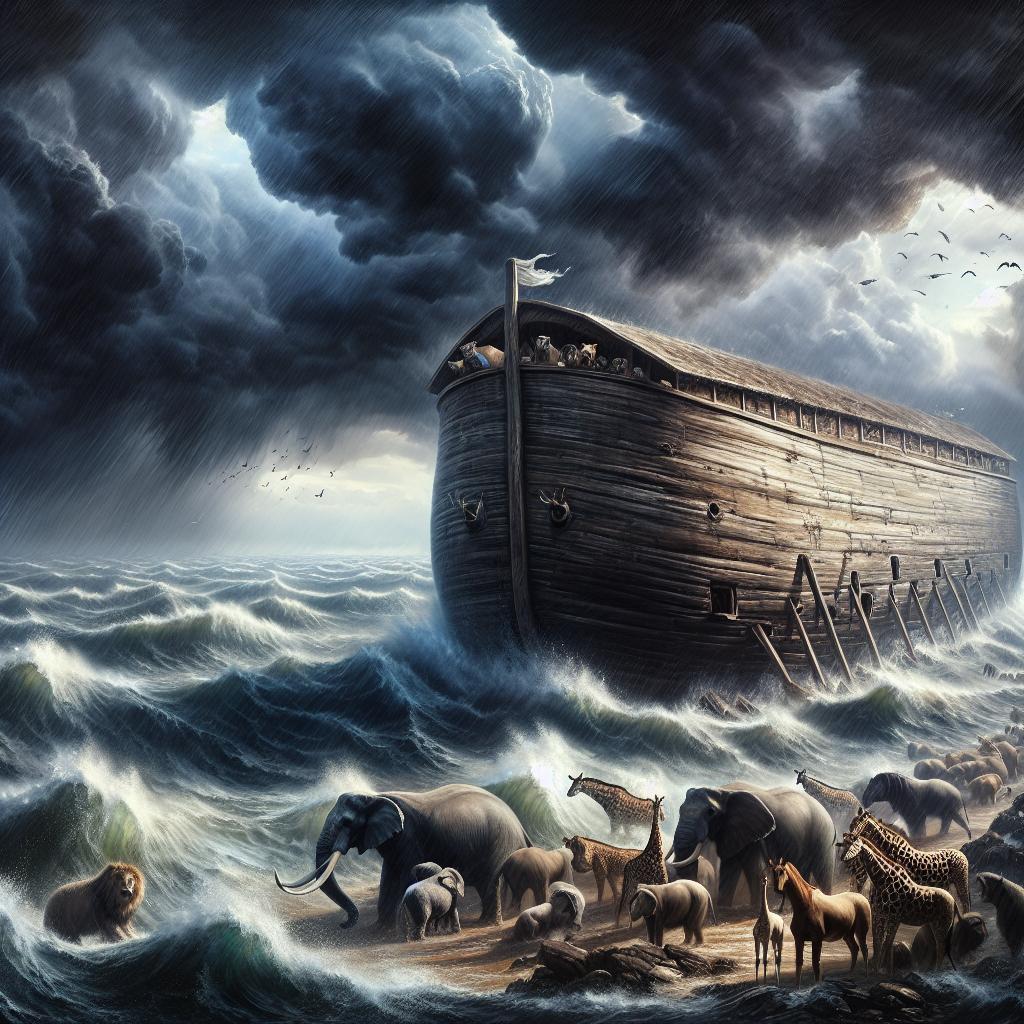
Unveiling Evidence of Noah's Flood: Black Sea Revelation
Published: 03 April 2024
Proof of Noah's Flood at the Black Sea
The Black Sea has long been a subject of fascination for explorers and researchers seeking evidence of Noah's Flood. One such explorer is Robert Ballard, renowned for his discovery of the Titanic. In 2000, Ballard led an expedition to the Black Sea in search of clues that could support the biblical account of Noah's Flood. What did he find, and what does it really mean?
1. Evidence of a Catastrophic Flood
During their exploration, Ballard's team discovered what appeared to be evidence of a sudden and catastrophic flood that occurred approximately 7,500 years ago. They captured sonar images of a submerged sandbar and gentle berm on the sea floor, suggesting that these features had remained undisturbed for thousands of years. To determine the age of the remains found on this submerged beach, they used radiocarbon dating. The freshwater mollusks were found to be 7,500 years old, while the saltwater species were only 6,900 years old.
It is worth noting that radiocarbon dating is not always reliable in providing accurate dates going back thousands of years. Creation Ministries International (CMI) suggests that Noah's Flood should be dated to approximately 4,300 years ago. Therefore, there may be some uncertainty regarding the exact timing of the cataclysmic event discovered by Ballard.
2. The Black Sea Deluge Hypothesis
Geologists William Ryan and Walter Pitman from Columbia University had previously proposed the Black Sea Deluge Hypothesis. According to this hypothesis, the Black Sea was formed when melting glaciers raised the sea level, causing the sea to breach a natural dam at what is now known as the Bosporus strait. This breach resulted in an apocalyptic deluge that inundated a freshwater lake below the dam, transforming it into a saltwater sea and submerging vast areas of dry land.
The flood described by Ryan and Pitman aligns with the biblical account of Noah's Flood in terms of its catastrophic nature. However, it is important to note that these geologists do not consider Noah's Flood to be a global event. They regard the tale of Noah as legendary and argue that the Black Sea flood served as the basis for this myth. By classifying the biblical account as a myth, they can dismiss any inconsistencies between their findings and the details provided in the Bible.
3. The Problem with Localizing Noah's Flood
While Ballard, Ryan, and Pitman have indeed discovered evidence of a significant flood in the Black Sea region, their claim that this flood corresponds to Noah's Flood is not supported by biblical accounts. Noah's Flood, as described in the Bible, was a worldwide cataclysm that left its mark on every continent. It involved 40 days and nights of rain, an ark measuring 140 meters in length, water covering the highest mountains, and a subsequent recession of water from the Earth.
Pitman himself acknowledges that his link between the Black Sea flood and Noah's Flood does not align with the biblical narrative. He does not interpret the Bible literally and suggests that his flood lasted around 40 years rather than 40 days. It is evident that Pitman selects Noah's Flood simply because it fits his narrative and generates public interest. Furthermore, geologists appreciate this interpretation as it allows them to dismiss the implications of a global Flood described in the Bible.
4. Undermining Biblical Integrity
The attempts to connect the Black Sea flood with Noah's Flood are part of a larger effort to undermine the integrity of the biblical account. However, it is essential to recognize that the Bible claims to be the Word of God, with all scripture being inspired by God (2 Tim. 3:16). To declare that Noah's Flood was anything other than what Scripture says it was—a global flood—is to accuse God of lying.
If we accept the claims made by Ballard and others, we undermine the credibility not only of Noah's Flood but also of the entire Bible. This has profound implications for our understanding of salvation and eternal life. Therefore, it is crucial to approach these claims with caution and consider the biblical account as a reliable source of truth.
Why This Matters
The debate surrounding Noah's Flood and its connection to the Black Sea flood is not merely an intellectual exercise. It has significant implications for our faith and understanding of the Bible. By questioning the global nature of Noah's Flood, some scholars seek to undermine the authority and reliability of Scripture. Accepting their interpretation would mean disregarding biblical accounts as historical events.
As Christians, we must remember that our faith is grounded in the truth of God's Word. The biblical account of Noah's Flood provides important theological and historical insights. It reminds us of God's judgment on sin and His faithfulness in preserving a remnant through Noah and his family. Embracing a localized flood theory jeopardizes these essential aspects of our faith.
Think About It
When considering scientific theories and interpretations, it is crucial to evaluate them in light of scriptural teachings. While scientific discoveries can provide valuable insights into our world, they should never be allowed to contradict or undermine the authority of God's Word. As we engage with different perspectives, let us remain steadfast in our commitment to the truth revealed in Scripture.
